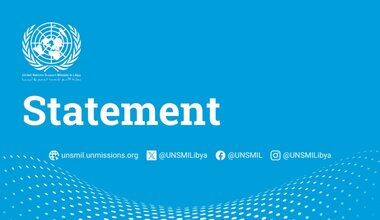The European Union and UNICEF together for the Youth of Libya
Tunis, 09 August 2016 – The Head of Delegation of the European Union to Libya, Her Excellency Ambassador Nataliya Apostolova and UNICEF Special Representative to Libya, Dr. Ghassan Khalil, signs a Partnership Declaration to contribute to resilience and social inclusion of Libyan adolescents and youth. The Partnership will focus on expanding the active role of youth and adolescents in society.
The Declaration follows the European Union agreement to fund UNICEF’s pilot project “Towards resilience and social inclusion of adolescents and young people in Libya” with 3 million Euros over a period of 36 months.
H.E Ambassador Apostolova and Dr. Khalil signing the Partnership Declaration on resilience and social inclusion of Libyan youth.
"Children, adolescents and youth are the future of any country and they are the ones who can and will contribute for the peaceful and prosperous development of their nation" affirmed Her Excellency Ambassador Nataliya Apostolova. The European Union and UNICEF stand together to support Libya's new generation by supporting their civic engagement and social and economic inclusion. Libyan youth need to be protected from any kind of violence and abuse, have access to basic services, and education. I envisage a future for Libyan youth where they can meaningfully participate in the cultural, social and political life of their country. "
“The generous contribution of the European Union will enable UNICEF to increase the access and participation of youth and adolescents to non-formal education, livelihood activities, social protection mechanisms, recreational and cultural programmes as well as increasing their positive engagement in peace-building initiatives across the country, “said Dr. Ghassan Khalil, UNICEF Special Representative in Libya. “Adolescent and youth, girls and boys who are in dire need for support will benefit from community-based services in the West, East and South of Libya through solid partnerships with the civil society and municipalities,” Dr. Khalil added.
Other relevant actors will be involved in the realisation of the activities such as parents, families, teachers, youth organisations, civil society organisations (CSOs), private sector, local government bodies, community leaders and Libyan central and local authorities.
 United Nations Peacekeeping
United Nations Peacekeeping UN
UN









